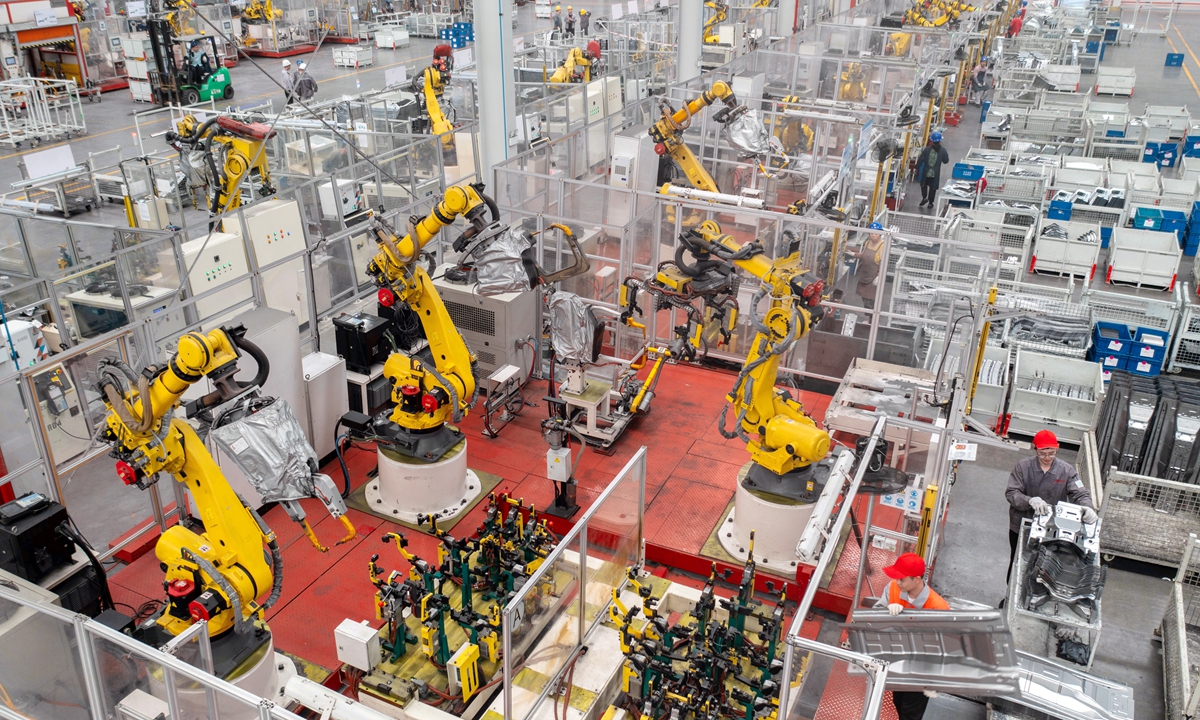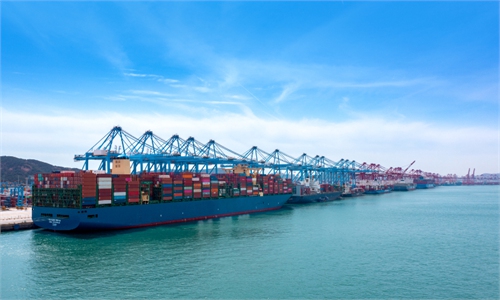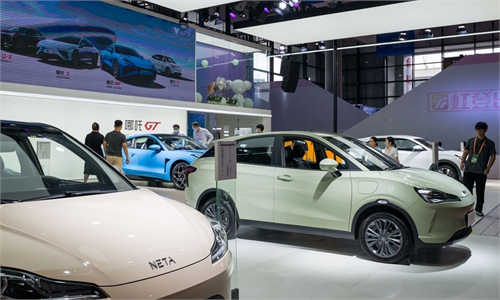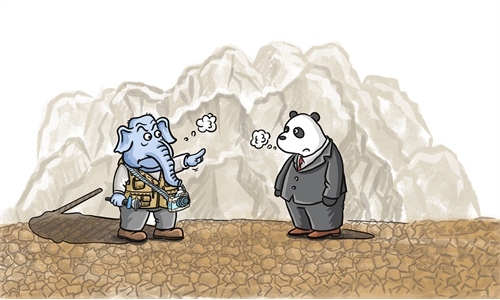
Workers and automatic robots make new-energy vehicle (NEV) parts at a factory in Huzhou, East China's Zhejiang Province, on May 4, 2023. China has been the largest NEV producer for eight years in a row. The nation produced 674,000 NEVs in March, up 44.8 percent year-on-year. Photo: VCG
Under the guise of safeguarding its "supply chain security," the US has announced new rules aiming to exclude batteries produced by China and certain other countries from its market. Experts on Sunday said it's another example of US protectionism and economic bullying.
The move will not only disrupt the global industry chain but also ultimately impede the development of the new-energy vehicle (NEV) industry in the US and postpone its pace of green transition, experts said.
Starting from 2024, no US-made NEVs that include battery components produced by China or other "Foreign Entity of Concern" (FEOC) sources will be eligible for electric vehicle tax credits, according to a US Treasury statement issued on Friday.
"Beginning in 2024, an eligible clean vehicle may not contain any battery components that are manufactured or assembled by a FEOC, and, beginning in 2025, an eligible clean vehicle may not contain any critical minerals that were extracted, processed, or recycled by a FEOC," the statement said.
Washington is effectively implementing a "closed-door" policy, attempting to exclude the technologically advanced Chinese NEV industry in favor of developing its own automotive sector, Zhang Xiang, president of the NEV Technology Research Institute at the Jiangxi New Energy Technology Vocational College, told the Global Times on Sunday.
Such deliberate interference in the market economy, which goes against market principles, may have the opposite effect, causing harm to both parties and not serving the long-term interests of its domestic NEV development, Zhang said.
The US does not allow other countries to threaten its technological dominance; hence, the crackdown on the Chinese NEV sector was foreseeable. However, the emergence of China's advantage in the sector was not an overnight achievement, Fu Yuwu, honorary president of the China Society of Automotive Engineers, told the Global Times on Sunday.
Since 2010, the Chinese NEV industry has undergone continuous innovation and accumulation of knowledge, resulting in an overall advantage, Fu said. "It is impossible for the US to curb the Chinese NEV industry through such policies."
From key minerals to battery components, China has formed a huge industry system, which cannot be bypassed by any part of the global NEV industry, including the US, Fu said.
In the first 10 months of the year, China exported 1.445 million NEVs, up 69 percent year-on-year, according to data tracked by the China Passenger Car Association (CPCA).
The nation has maintained its position as the global leader in the production and sales of NEVs for eight consecutive years, according to media reports.
China's exports of NEVs have shown a remarkable surge in 2023, performing exceptionally well in the Southeast Asian and European markets. This highlighted the robustness of China's industry chain, resulting in dual growth with a strong domestic market and increased exports, Cui Dongshu, secretary general of the CPCA, told the Global Times.
Chinese enterprises are increasingly seeking global collaboration in the industry chain, establishing overseas plants, and setting up partnerships with foreign companies. "The deep integration of domestic and foreign industry chains is an effective strategy for China to navigate trade protectionism," Fu said.
In February, Ford announced a collaboration with Chinese battery giant CATL to build an electric vehicle battery factory in the US state of Michigan. In August 2022, CATL announced that it would build a 100 gigawatt-hour battery plant in Debrecen, Hungary, which is also the company's second battery plant in Europe.
CATL is the only battery manufacturer globally with a market share exceeding 35 percent, which means that for every three electric vehicles sold worldwide, at least one is equipped with a CATL battery, according to media reports.



